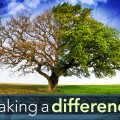 Who doesn't want to be blessed and have God's favor? Those who received the blessing of the Lord in the Bible seemed to have amazing lives and were able to touch other's as a result. Where will we be if we just ask God every now and then for His blessing? I'm not talking about for our selfish purposes; I'm talking about blessings for God's purpose. Are there blessings we might be missing out on?
Who doesn't want to be blessed and have God's favor? Those who received the blessing of the Lord in the Bible seemed to have amazing lives and were able to touch other's as a result. Where will we be if we just ask God every now and then for His blessing? I'm not talking about for our selfish purposes; I'm talking about blessings for God's purpose. Are there blessings we might be missing out on?
- "Ask, and it will be given to you; seek, and you will find, knock and it will be opened to you. For everyone who asks receives, and he who seeks finds, and to him who knocks it will be opened." (Matthew 7:7-8)
- "....Yet you do not have because you do not ask. You ask and do not receive, because you ask amiss, that you may spend it on your pleasures." (James 4:2-3)
- "Now to Him who is able to do exceedingly abundantly above all that we ask or think, according to the power that works in us, to Him be glory in the church by Christ Jesus to all generations, forever and ever. Amen." (Ephesians 3:20-21)
Email Subscription:




To explain how I have been blessed by God today is to ask me to count all the stars “…that God knows and calls by name.” For me to explain how I have been blessed by God today is to ask me to “…count all the hairs on [my] head” like God can do. For me to explain how I have been blessed by God today is for me to refer back to the famous line of poetry written by Elizabeth Barrett Browning when she asks, “How do I love thee? Let me count the ways.”
My blessings are obvious. I have a brain with which to think; I have eyes with which to see; I have ears with which to hear; and materialistically, I have a job, a house that is warm on cold days, money to spend, hopefully not frivolously; and personally, I have friends and family who enjoy my company and a dog that chooses to love and to be loyal to me, no matter what. Again, I say, “…let me count the ways.”
But how about the intangibles? How about the pain and the disappointments that are really blessings in disguise? How about the fact that I believe I am who I am not so much because of the blessings but because of the pain inherent in so many of the blessings. I was blessed because my father came to live with me but the blessing was a paradox because I helped him understand and deal with death while over a period of time, I watched him die of Parkinson’s Disease. I was blessed because I was able to enjoy the love and companionship of two dogs at the same time. But I held one of those dogs in my arms as it cried out in pain and then breathed its last breath. I was blessed to teach with a very vivacious and gifted math teacher. But I was asked to deal with her untimely death and asked to explain not only to myself but to also my students why she, who had two very young children at the time of her passing, had to die at the age of thirty-six. Again, “…let me count the ways.”
“The Agony and the Ectasy,” the title of a movie and book about the life of Michelangelo. “It was the best of times; it was the worst of times,” the beginning line of Charles Dickens’ “Tale of Two Cities.” Life! Don’t they both suggest the nature of life here on earth? Blessings! Isn’t pain inherent in so many of them, but isn’t it up to each of us to decide if the proverbial glass is “have empty or half full”? And isn’t it up to us to glean from each experience what God wants us to know so that we can use our experiences and our BLESSINGS to bless others, serve others, and bring glory and honor to His name.
Who I am today, as I have already said, I believe is the sum total of all the BLESSINGS I have been given and all the BLESSINGS I have CHOSEN to experience in my life. I pray that God will look at who I am at this point in time and say, “How can I use her? ‘…let me count the ways.'”
How have I been blessed today? — “…let me count the ways.”
The whole idea of the paradox of blessings…visible, obvious blessings vs. hidden (for now?), veiled, blessings–even those couched in pain–is certainly one of those timeless mysteries of the human experience. Sometimes we have to have the “blessing” of hindsight to see the blessings we can’t see even at the time we’re receiving them.
Isn’t it interesting how oftentimes others can see blessings happening in our lives that we can’t see ourselves? How we become so focused on the pain or the confusion of the moment that we can’t imagine how God is using it to bless us, while someone with a different perspective can so quickly point out to us the possibilities? How it is that we’re so deep inside the dark clouds that we can’t perceive a silver lining that is so clearly obvious to others?
I’m not really sure where I’m going with that notion, other than to say that maybe the “blessings” we receive are vastly more than we are able to perceive. How God uses other people to intersect and intercede at those times when blessings come in a more painful form. And how maybe the pain doesn’t come from the “blessing” itself, but from our own “junk”…our own feelings of guilt, or unworthiness, or pride…any number of the very human barriers we have to God’s unfathomable grace. Those things that make us listen to the negative voices that reinforce our barriers rather than the positive ones that can see the possibilities for the blessings?